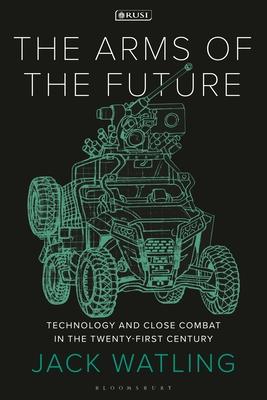From sensor-fuzed munitions and autonomous weapons, to ground moving target indication radar, laser vibrometers and artificial intelligence, the weapons of warfare are undergoing a rapid transformation, with modern technologies reshaping how armies intend to fight in the twenty-first century.
The Arms of the Future analyses how the emergence of novel weapons systems is shaping the risks and opportunities on the battlefield. Drawing on extensive practical observation and experimentation, the book unpacks the operational challenges new weapons pose on the battlefield and how armies might be structured to overcome them.
At a time when defence spending across NATO is on the rise, and conflict with Russia raises new questions of what it means to fight a truly 'modern' war, Watling examines not just the arms to be employed but how they can be fielded and wielded to survive and prevail in future wars.

The Arms of the Future: Technology and Close Combat in the Twenty-First Century
From sensor-fuzed munitions and autonomous weapons, to ground moving target indication radar, laser vibrometers and artificial intelligence, the weapons of warfare are undergoing a rapid transformation, with modern technologies reshaping how armies intend to fight in the twenty-first century.
The Arms of the Future analyses how the emergence of novel weapons systems is shaping the risks and opportunities on the battlefield. Drawing on extensive practical observation and experimentation, the book unpacks the operational challenges new weapons pose on the battlefield and how armies might be structured to overcome them.
At a time when defence spending across NATO is on the rise, and conflict with Russia raises new questions of what it means to fight a truly 'modern' war, Watling examines not just the arms to be employed but how they can be fielded and wielded to survive and prevail in future wars.